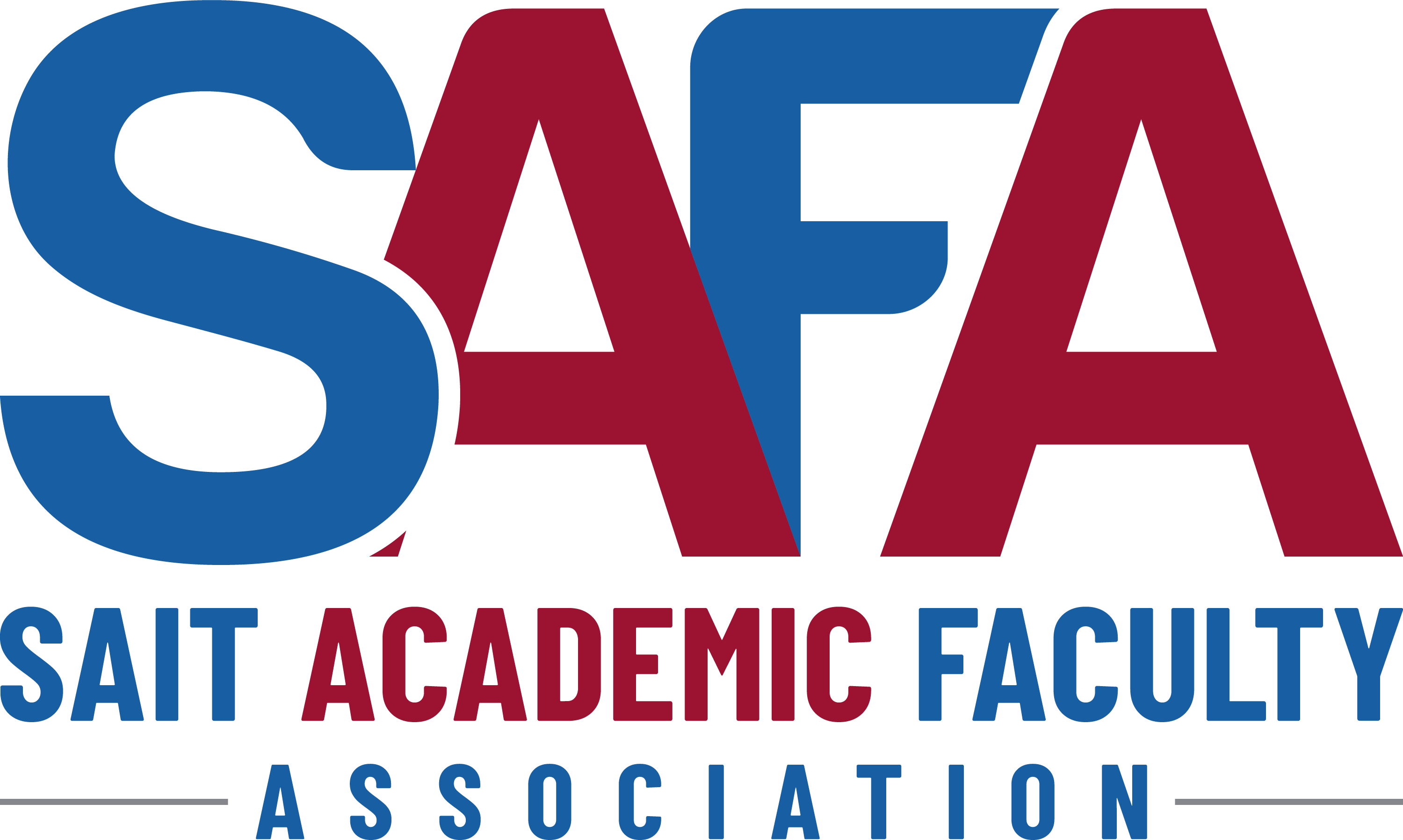Enrollment Drops Create Uncertainty and Workload Pressure
The dreaded yet inevitable happened last week, when SAIT’s Vice-President, Academic, Janet Welch, sent an email confirming the impact of the federal government’s decision to control immigration levels over the next two years. While SAIT has not experienced the same dramatic drop in international student enrolment as many other institutions, it still has seen a significant decline. With fewer students, revenue has dropped. In response, SAIT is reducing expenses, decreasing course offerings, and not renewing casual and temporary-salaried faculty’s employment.
A Difficult Time for Colleagues
This situation is understandably distressing for our contingent members, many of whom have built strong relationships with students and teams, contributed significantly to program success, and now face sudden job insecurity with little notice.
At the same time, this staffing reduction will have ripple effects for those who remain. Many full-time faculty may be fully loaded, asked to take on unfamiliar or new courses, or even asked to teach outside of their area of expertise.
What This Means for Full-Time Faculty
While the employer can assign work, this must still fall within the limits of the Collective Agreement and Faculty Workload Guidelines. To safeguard your rights, SAFA strongly encourages you to:
· Review your workload assignment in detail.
· Consider whether your Class Contact Hours (CCH), Class Management Activities (CMA), and Professional Duties (PD) are reasonable.
· File a workload complaint if your assignment is unbalanced or unfair.
For example, if you’re assigned a course that’s new to you or one you haven’t taught in five years or more, your Academic Chair is required to account for that in your workload. That includes giving you additional time for class preparation. If that’s not happening, reach out to your SAFA representative —we’re here to help.
Remember, too, that fewer instructors does not mean you are required to exceed your standard weekly workload. The expectation remains: 37.5 hours per week, averaged across the monthly or annual basis. If your load consistently exceeds that, document your time and let SAFA know.
Looking Ahead
It’s never easy to lose faculty members. SAIT has told us that it considers this enrolment dip to be temporary, and they are actively exploring strategies to improve course planning and offerings to increase enrolment and revenue.
We’ll be watching closely as September approaches – it promises to be a pivotal time for SAIT and its faculty.
In Solidarity,
Craig Coolahan
SAFA Labour Relations Officer
_______________________________________________________________________________
NOTICE: SAFA Office Closure
The SAFA office will be closed next week, May 12-15, as our team will be hosting the provincial ACIFA Conference. As a result, there will be no weekly message sent out next week. We appreciate your understanding and look forward to reconnecting once the conference wraps up!
_______________________________________________________________________________
Unmasking Mental Health: Boundaries, Burnout, and the Need to Be Heard
This week marks CMHA’s Mental Health Week, and the theme — Unmasking Mental Health — hits close to home for many of us. At a time when SAFA members are juggling compressed timelines, rising workloads, and unrealistic expectations, it’s important to say it plainly: stress is not a personal failing. It’s a predictable outcome of unbalanced systems.
The Canadian Mental Health Association is encouraging people to stop hiding their struggles, and we’re echoing that message. Taking a mental health day, saying no, or just admitting you’re at capacity is more than okay — it’s necessary. If your department is ignoring boundaries or piling on unrealistic demands, don’t suffer in silence. Your mental health matters, and SAFA is here to support you – contact your rep for more information. #UnmaskingMentalHealth

